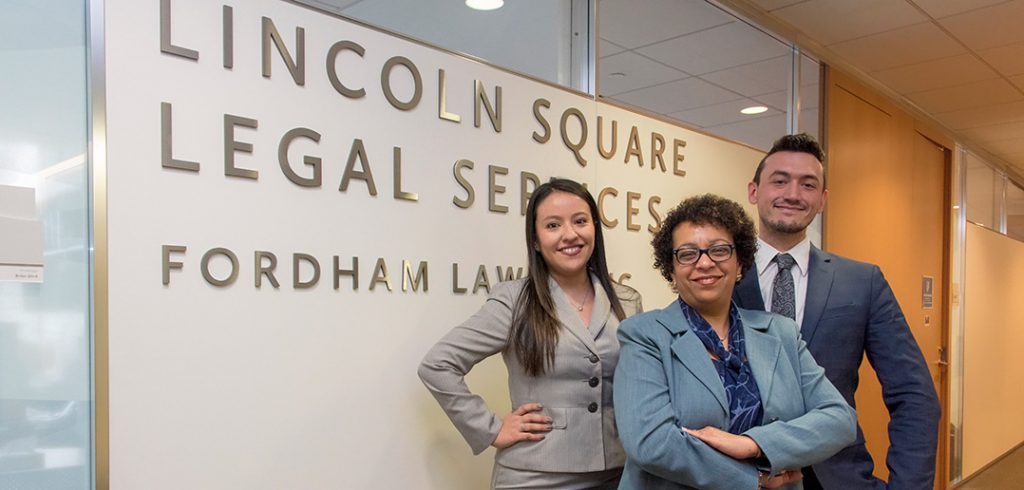After years of research and preparation, students in Fordham Law School’s Immigrant Rights Clinic have helped an African man secure asylum in the United States. The man had suffered punishment for his sexual orientation and faced threat of further persecution if forced to return to his home country of Chad.
The clinic’s work for the Chadian man began with a referral from Immigration Equality, the nation’s leading LGBTQ immigrant rights organization. The clinic swiftly assembled students to begin work on the case. Asylum cases, often tortuous, demand teams of students who can affirm a case’s viability, collect ample evidence, draft legal documents, and prepare the client for interviews.
Summer research assistants 3L Christopher Guerin and 2L Saul Schuster worked to keep application materials up-to-date. Guerin, who worked on the case in summer 2016, researched the current political climate in Chad and neighboring countries.
“I was sad to see how other countries view gay rights,” said Guerin, whose future plans include a career in corporate law and pro bono work in immigration, and who said the asylum victory was both a joy and relief. “I was very happy for him and for everyone who worked on the case.”
Schuster, who worked on the case the following summer, also researched evidence to help prove the client’s past persecution and risk of future punishment. Like Guerin, Schuster was moved by the man’s circumstances, noting his own conflicting emotions: When reading reports of the country’s treatment of LGBTQ people, Schuster was upset to learn how many people suffer torture under similar circumstances and thus eager to obtain evidence in the client’s defense. For Schuster, the work was also personal.
“I owe a duty to my legacy,” said Schuster, whose grandfather had survived the Holocaust and similarly sought refuge in the United States, and who plans to pursue a career in immigration law.
After receiving a government notification about the client’s scheduled asylum interview, students who worked most recently on the case had two weeks to prepare. Anne-Charlotte Lagrandcourt, an LL.M. student from France, served as translator during preparation interviews and for various documents.
“It was both a legal and a human experience,” said Lagrandcourt, whose past legal work includes translating for refugees in Baltimore, and whose future career will involve international human rights law.
The clinic team that prepared for the interview faced a number of last-minute challenges, including the need to change the affidavit during a preparation interview and to deal with an emotional conflict that arose with the client’s family. They also had to craft a persuasive cover letter to the immigration officers—a daunting task considering that, on the day of the interview, the document would serve as their only form of advocacy for the man.
According to 3L Andrea Rodriquez, the interview itself went smoothly given the time-consuming circumstances. While the demeanor of the interviewing officer was professional and the client was calm, confident, and focused, the entire process was a lengthy one: eight hours total in the asylum office, five of which were spent in the actual interview.
After the October interview, students anxiously awaited news for four months about their client’s future—hoping for the best but fearing the worst. When the good news came, they were ecstatic.
“It was such a relief,” said Rodriquez. “We’re all just so thrilled to have helped this wonderful human being.”
The Immigrant Rights Clinic allows students to represent clients from around the world in their fight to gain or maintain U.S. legal status. Students help clients win asylum, earn legal status independent from abusive partners, or keep their lawful permanent residences while plagued by criminal records. Learning about the often dismal conditions from which the clients seek refuge offers students a new perspective on their own lives.
“The clinic gives students the opportunity to be faced with the reality of what people experience for reasons that don’t make total sense to us as U.S. citizens,” said Gemma Solimene, the clinic’s director. She added that students also gain appreciation for the law and for their powerful legal education.
“I learned how rewarding it is to be a lawyer and change lives,” said Rodriquez. She said that, after learning the positive outcome, she cried for joy.
—Lindsay Pelucacci

